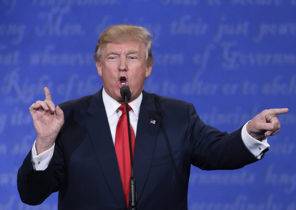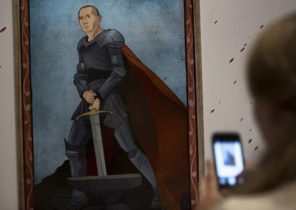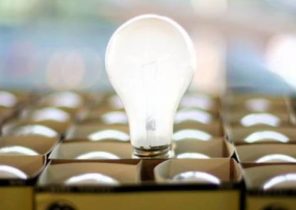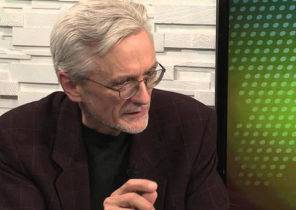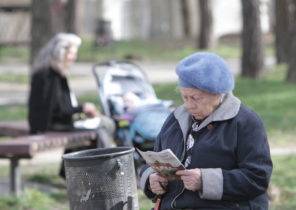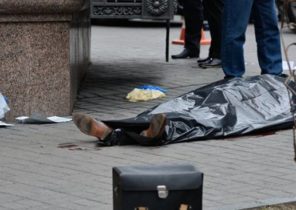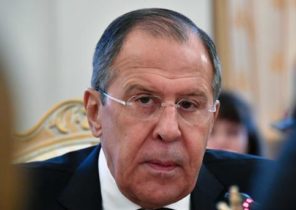
The President of Russia Vladimir Putin had many reasons to smile, looking back at last year, proved largely successful for Russia from a geopolitical point of view. But Santa Claus for the New year did not bring the Russian leader’s main gift is a strong economy.
In foreign policy, the year 2016 was quite successful for Putin. In particular, Britain’s decision to secede from the EU and the election of Donald trump President of the United States sowed uncertainty in the West, giving Russia additional opportunities to promote on the world stage their own political interests and social agenda. It went so well that even in Estonia — the Baltic state, traditionally looking at Russia warily — at the end of November has come to power in a coalition government, the head of which stood friendly to Moscow the Prime Minister.
A series of geopolitical successes, including gambit in Syria and reconciliation with Turkey, shows that Putin’s personal brand of illiberalism — the so-called “sovereign democracy” — is gaining popularity. And Western liberalism seems faded, staying in the mess and unable to adapt quickly to the Digital age, when any idiot with a smartphone can wreak hatred, lies and confusion.
But this luck don’t change one thing: behind the facade restored, it would seem that greatness lies a serious weakness, which Putin ignored throughout his three presidential terms during his tenure as Prime Minister. While Putin’s Kremlin in recent years has been busy strengthening of Russia’s influence abroad and promoting “traditional” — i.e., anti-liberal values, the Russian economy sank into crisis.
A disturbing reality is that Russia is now more dependent on mineral exports than ever before in the post-Soviet period. Despite falling prices, Russia in 2016 was at a record level of oil production (11,21 million barrels per day) and gas exports (614,5 million cubic meters per day). At the same time, the industry in Russia continues to languish experiencing difficulties with the production of goods (except weapons), popular in the world market.
In other words, Russia’s economy is now more suited to the colony than the Imperial power.
Putin, apparently, absorbed by the idea of returning to the Russian law, in his view, belonging to her role as a global player, but his unwillingness to carry out structural reforms within the country stifled the economy and leads to serious social consequences. He confronts a growing number of Russians to the threshold and for the threshold of poverty.
State-controlled Russian media recently tried to paint a positive economic picture, citing many experts who say that the most difficult period for Russia following the cause of the collapse of energy prices is behind us, and in 2017 the country will begin to experience economic growth. “There is a positive trend,” said Putin during the annual big press conference in late December.
As reported by news Agency TASS with reference to the forecasts of the Ministry of Finance and the Central Bank of the Russian Federation, in 2017, Russia’s economy needs to grow by 1%, while inflation was reduced to 4%. It is expected that the budget deficit this year will amount to 3.2% of GDP (if the price of Urals oil at 40 dollars a barrel).
But aside from the joyous formal calculations and down to earth, the growth of the common man seems to be very cheerless. Of greatest concern — or at least should cause concern of the Russian government — the indicator is uninterrupted for the past 25 consecutive months of falling disposable incomes of Russians. During this time, disposable income fell by about 16%. For comparison, even in the most difficult period of the great recession in the United States at the end of 2000-ies of the disposable income of Americans fell for more than seven months in a row.
According to a November world Bank report, as of mid-2016 14.6% of inhabitants of Russia (or about 21.4 million people) had incomes below the established authorities of the country of poverty. The report also reported that the number of people with incomes close to the poverty level reached 51%, resulting in “a lost achieved in recent years, the level of economic prosperity.” Currently, the subsistence minimum in Russia was set at 9 889 rubles (about $ 160) per month.
But the statistics on poverty do not reflect the full picture. Serious difficulties have affected much wider sections of the population. According to the published in November the results of studies of the Higher school of Economics, one of the leading Russian research institutes, 41% of respondents stated that they do not have enough money for food and clothes. Overall, 73% of respondents reported that due to financial problems they have to reduce the cost of key goods and services, or completely abandon them.
For most Russians, the situation in the near future, most likely, will not improve. The Ministry of economic development, published in November the document predicted that disposable income will grow by 0.2% in 2017 and 0.5% in 2018. But even these very modest figures should be taken with skepticism, because the situation with the accuracy of forecasts from the Ministry leaves much to be desired: it is said that in 2016, the disposable income will fall by 0.7%, while the real figure was eight times higher — income sank by 5.6%.
It is noteworthy that the solution to this problem, Putin is apparently counting on the United States, specifically, the administration of the trump. In his new year message the Russian leader expressed hope that bilateral relations can go “whole new level”.
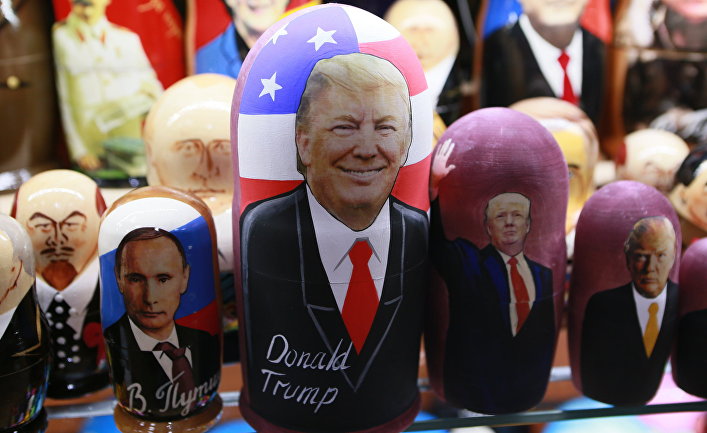 © RIA Novosti, Anton Denisov | go to photobacteria with a portrait of Donald trump sold in Moscow
© RIA Novosti, Anton Denisov | go to photobacteria with a portrait of Donald trump sold in Moscow
“…Acting in a constructive and pragmatic spirit, [our country] will be able to take real steps to restore the bilateral cooperation mechanisms in various fields”, — said Putin. If you analyze and decipher this statement that the translation would be: “I expect that trump will remove imposed sanctions on Russia, would not interfere with me act as I please, in internal Affairs, and will not cause me headaches in foreign policy”.
Putin clearly hopes for assistance from the team of trump. But, as it convinced the majority of American voters, trump is a master to break the projections and calculations. To expect that trump will be consistent and predictable — it’s all the same what to expect from the Pope’s conversion to Islam.
Putin and his entourage, apparently, also expect to increase and subsequent stabilization at a high level of oil prices, which would fill the state coffers. But such optimism is built on shaky foundations. In this area in the short and medium term, the key word is “uncertainty”.
But even if prices rise and the administration, trump will be compliant, which will allow Russia to improve their financial situation, to enjoy the benefit can only kleptocrats and capitalists from the close circle of Putin, right employees are the main “sovereign democracy” in the country. Residues from their table to the masses is not enough.
The only solution to economic problems is structural reforms. To achieve financial stability and economic prosperity of the broad masses, the Russian economy needs to diversify and get rid of the dependence on increases in the prices of fossil fuels and other raw materials. You also need to reform the labor market and the social protection system. But first and foremost it is necessary to ensure the inviolability of private property. Entrepreneurs and investors must be confident that it will respect the principle of rule of law and the justice system in Russia will act as an independent arbiter in dispute resolution.
But the problem for Putin is that economic liberalization would go against his illiberally the agenda. Structural reforms will require him to greatly weaken the political control over the economy, as any self-respecting “sovereign democracy” is simply not able to even partially relinquish power. From the point of view of Putin’s “sovereign democracy” should not be confused with the concept of people’s power.
So what does all this mean? The ability of the Russian people to endure the hardships long ago became a legend. And since Putin controls the Russian media space and has a formidable system of security agencies, the threat to his power because of the growing discontent of the population appear to be minimal — at least compared to what would happen if Russia were truly representing the people, the government.
But history shows that patience of the Russian people there is a limit: for example, in the early 1920-ies Lenin had to abandon war communism and to accept the NEP. If the standard of living under Putin will continue to fall, or even just stagnate, the public may lose faith in the “sovereign democracy”, as happened in the early 1990’s, when following the collapse of the Soviet Union, the chaos destroyed the dream of democracy of the Western type.
In addition, even in the “sovereign democracy” have to vote, and in Russia following the presidential elections in 2018. Although the elections will be neither free nor fair, the process will create opportunities for the manifestation of the accumulated discontent. Putin is as soon as possible be concerned about the question of raising the standard of living of the population. Otherwise Russia may experience an unexpected political events, such as those that rocked the US and EU in 2016.
This does not mean that Putin (or his designated successor) will shift from office by a vote. Such a scenario model of “sovereign democracy” is not provided.
But there are other scenarios. Although the implementation of a successful revolution “from below” it seems unlikely, it is worth noting that over the last three hundred years of Russian history, several monarchs of the Romanov dynasty and the two Communist Secretary General became victims of Palace coups.
If Putin wants to retain influence inside the country and abroad, he should remember the words of the American political strategist James Carvile: “it’s the economy, stupid.”
